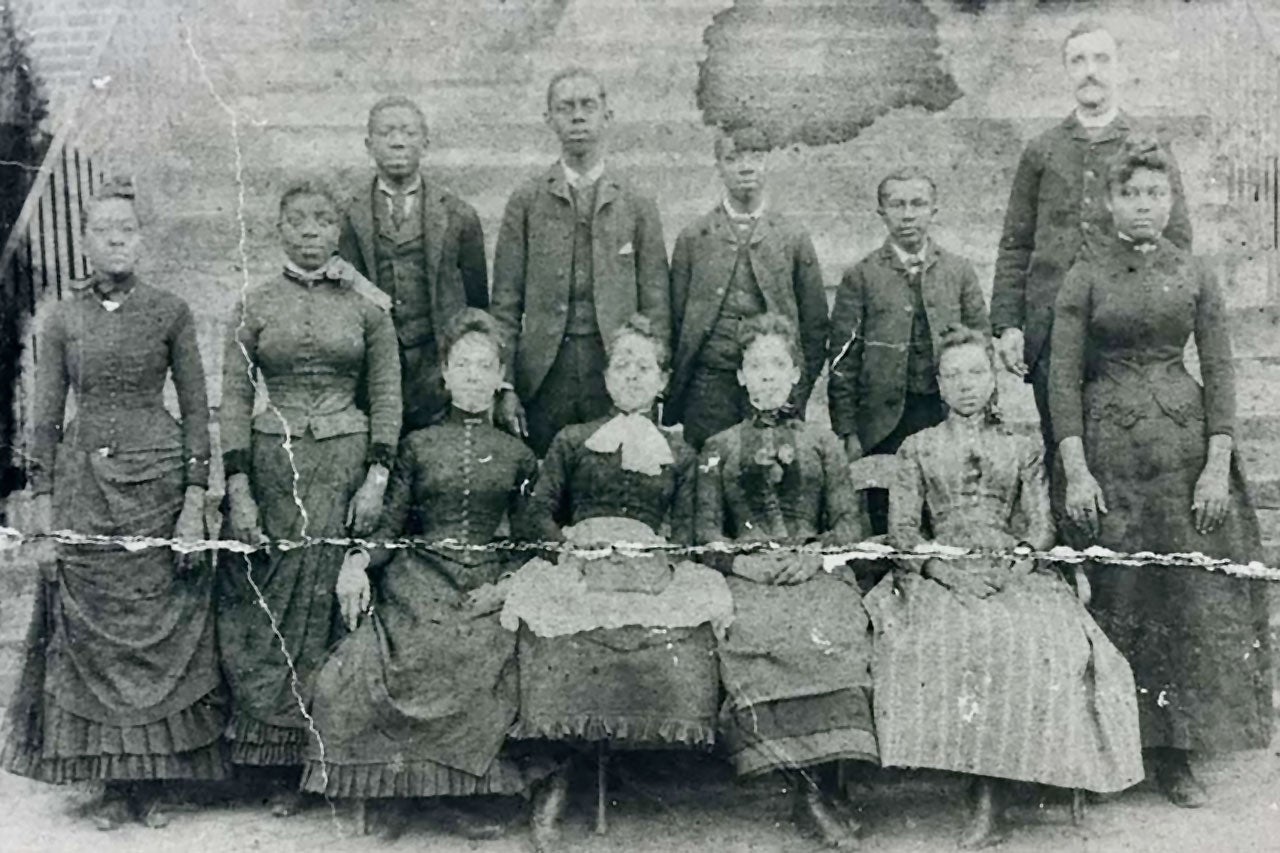“A little learning, indeed, may be a dangerous thing, but the want of learning is a calamity to any people.”

Built by the Freedmen’s Bureau, the Avery Normal Institute opened in May of 1868, courtesy of the Avery Research Center.
Those words, uttered by abolitionist and escaped slave Frederick Douglas, reflect the urgency he and others felt to empower the United States’ newly freed African American population following the end of the Civil War. And that sentiment quickly led to the establishment of schools for black students across the American south.
In Charleston, the American Missionary Association founded the Avery Normal Institute in 1865 as one of the city’s first secondary schools to legally offer a formal education to newly emancipated slaves and free people of color. The school operated until 1954 when it merged with nearby Burke High School.

Avery alumni partnered with the College in 1985 to open a research center for African American history and culture at the former school.
The school’s history, the legacy of its students and its impact on the community is getting a fresh retelling in an updated exhibition, “Avery: The Spirit That Would Not Die, 1865-2015.”
Known today as the Avery Research Center for African American History and Culture, the center was established at the College of Charleston in 1985 on the former site of the institute on Bull Street as an education and research facility.
“Avery was a groundbreaking institution,” says Avery Research Center Public Historian Mary Battle, who co-curated the new exhibit along with Curator Curtis J. Franks, faculty, staff and scholars. “As a teacher training school, many of Avery’s graduates went on to teach throughout the Lowcountry and played a big role in promoting education, as well as asserting equal rights, citizenship, local activism and the civil rights movement throughout the twentieth century.”

By 1924, the Avery Normal Institute was thriving as a teaching school, courtesy of the Avery Research Center.
The enhanced permanent exhibit opened in June as part of the center’s continued celebration of its 30th anniversary and the 150th anniversary of the founding of the institute, which began in 2015. A new digital exhibit of the same name is available online through the Lowcountry Digital History Initiative.
The expanded exhibits feature new information and displays, including a larger array of photographs and written documents, showing the contributions of the school’s faculty and students. This is the first time the center’s permanent exhibit has been updated since it was first curated in the 1980s.

In Avery’s final years, the school had grown to incorporate a variety of extracurricular activities including football, gymnastics, basketball, drama and glee club, courtesy of the Avery Research Center.
Unearthed stories of Avery’s role as a hub for the NAACP and the important contributions of its graduates, offer new insight into the institute’s significance from Reconstruction through the civil rights movement of the 1950s and 1960s.
“What’s fascinating is how Avery both shaped and was shaped by history in Charleston and beyond,” says Battle. “The new exhibit is about making connections between what was going on at Avery and more broadly in Charleston’s influential African American history.”
The Avery Research Center is located at 125 Bull St. in downtown Charleston. The center is open Monday through Friday from 10 a.m. to 5 p.m. and is free to the public. Guided tours are available at 10:30 a.m., 11:30 a.m., 1:30 p.m., 2:30 p.m. and 3:30 p.m.




